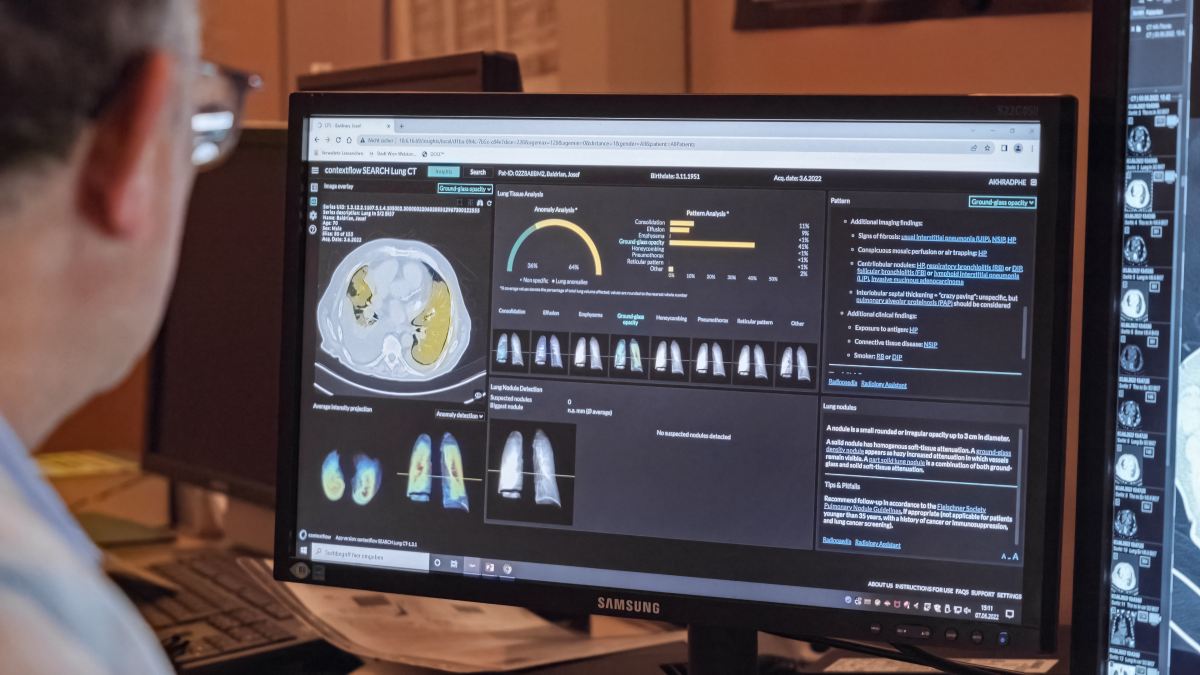EMR is integral in transforming how healthcare companies store, share, and access the logs in the complex healthcare industry. I have compiled this blog by evaluating the vitality of electronic medical record systems in the Saudia Arabia region. By reading this, you will learn about the intricacies of EMRs in Saudi Arabia. Furthermore, it will also let you know about its significance and impact on healthcare providers and patients.
Exploring Electronic Medical Record Systems
EMRs, through their automated checks for potential issues, play a crucial role in patient safety. For instance, when prescribed a new drug, the system automatically identifies and alerts potential conflicts with a patient’s other specifics or health conditions. This real-time identification and correction of functional problems are invaluable, surpassing the challenges associated with paper-based systems.
While the advantages of EMRs are evident, investment, medication, and training challenges exist. The initial hurdles notwithstanding, the fiscal benefits, improved quality of care, and streamlined workflows make EMRs a worthwhile investment for healthcare providers in Saudi Arabia.
The Types of EMRs
Various medical specialties benefit from tailored EMRs. It ensures that each practice can optimize its workflow and cater to the specific needs of its patients. From dentistry EMRs to urology EMRs, the adaptability of EMR systems demonstrates their versatility in catering to various healthcare disciplines.
Adopting electronic medical records in Saudi Arabia marks a significant milestone in healthcare technology. As healthcare providers increasingly adopt EMRs, the industry evolves towards a more connected, efficient, and patient-centered approach to healthcare delivery. Saudi Arabia is on the path toward a digital healthcare future, which promises numerous advantages for healthcare providers and their patients.
Why Electronic Medical Record Systems Are Important?
The Saudi Arabian healthcare industry increasingly recognizes the need for Electronic Medical Record systems for several compelling reasons that enhance healthcare delivery, efficiency, and patient outcomes. Here are some key factors highlighting the importance of EMRs in the Saudi Arabian healthcare domain:
Improved EPR Patient Care and Coordination
The Electronic patient record provides a centralized and comprehensive repository of patient information, enabling healthcare professionals to access accurate and up-to-date medical records. This facilitates better-informed decision-making, leading to improved patient care.
Enhanced coordination among healthcare providers is achieved through shared access to a patient’s medical history, ensuring that all involved parties have a holistic view of the patient’s health status.
Efficient Workflow and Time Management
EMRs streamline administrative processes and reduce the reliance on paper-based documentation, improving workflow efficiency. This allows healthcare providers to dedicate more time to patient care.
Automated features within EMRs, such as prescription alerts and real-time data entry, contribute to time savings and reduce the likelihood of errors in medical records.
Patient Safety and Accuracy
EMRs contribute to patient safety by providing tools that automatically check for potential drug interactions, allergies, and other critical information. This real-time identification of issues enhances the accuracy of diagnoses and treatment plans.
The digitization of medical records minimizes the risk of losing or misplacing important patient information, ensuring that healthcare providers have access to complete and accurate data.
Data Security and Privacy Compliance
EMRs often come with advanced security features to safeguard patient data. Implementing electronic records helps ensure compliance with data protection regulations and privacy standards.
Access controls and encryption mechanisms within EMRs contribute to maintaining the confidentiality of patient information. They also help in addressing concerns related to data breaches and unauthorized access.
Public Health Initiatives and Research
Aggregated and de-identified data from EMRs can be utilized for public health initiatives and medical research. Analyzing large datasets allows healthcare authorities to identify trends, patterns, and potential health risks at the population level.
Participation in research initiatives contributes to advancements in healthcare practices and the development of targeted interventions for specific health issues.
Streamlining Healthcare Operations
EMRs assist in optimizing overall healthcare operations, including appointment scheduling, billing, and administrative tasks. This contributes to cost savings and increased operational efficiency for healthcare providers and institutions.
Integration with other healthcare systems, such as laboratory and imaging systems, further streamlines processes and reduces the likelihood of errors in data exchange.
The Difference Between EMR vs. EHR
Before understanding the specifics of EMRs, it’s essential to distinguish between an EMR and an Electronic Health Record (EHR). While an EMR contains comprehensive information and records of a patient’s history with one provider, an EHR goes beyond, encompassing shared health information accessible to authorized providers, health associations, and conventions. This shared approach facilitates coordinated care across multiple providers, enhancing healthcare delivery’s efficiency and effectiveness.
EMRs, as digital interpretations of patient charts, provide a comprehensive record of medical information within a specific practice. In contrast, EHRs serve as digital repositories of patients’ health information, traveling with them across various healthcare providers. Both are crucial elements in patient care continuity, ensuring an impactful flow of information for informed decision-making.
Finalizing The Guide With Advantages of EMRs in Saudia Arabia
Electronic medical record systems offer a range of benefits for both patients and healthcare conventions. For patients, the advantages include minimized errors in medical records, quicker assessment and care, improved data tracking over time, and advanced health opinions and treatments. Additionally, EMRs help identify cases due for preventative visits, strengthen the privacy and security of patient data, and enable easy access to personal health records.
EMR Benefits for healthcare conventions include,
- Space savings by eliminating paper records
- Optimized workflow, leading to increased cases served per day
- Reduced administrative challenges and operational costs
- Seamless interfaces with hospitals, pharmacies, labs, and state health systems
EMRs also facilitate the gathering and analysis of patient data for targeted outreach, clinical cautions, and improved exploration and monitoring of advancements in healthcare quality.

